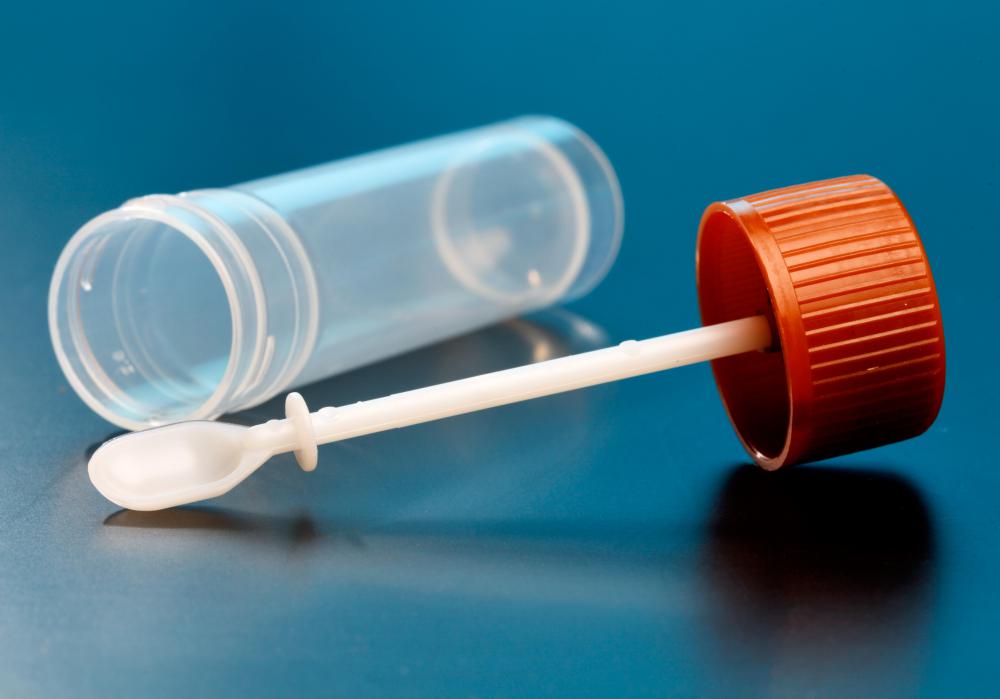At TheHealthBoard, we're committed to delivering accurate, trustworthy information. Our expert-authored content is rigorously fact-checked and sourced from credible authorities. Discover how we uphold the highest standards in providing you with reliable knowledge.
What is Proctocolitis?
Proctocolitis is an inflammation involving the rectum and colon and is associated with a number of root causes. Some patients develop this condition as a result of sexually transmitted infections, while others may experience it in conjunction with inflammatory bowel disease, ulcerative colitis, and related conditions. Management of proctocolitis can include medications to kill infectious organisms along with drugs to reduce inflammation. In severe chronic forms, surgery sometimes needs to be explored as a treatment option.
In cases associated with sexually transmitted infections, common causes are Neisseria gonorrhoeae and Chlamydia trachomatis, although other organisms can be involved as well. The patient can experience pain and discomfort, particularly while defecating, and may develop bloody stool, as well as a foul smelling discharge from the rectum. Antibiotic or antiviral drugs can be used to kill the organism, and the inflammation should resolve once the infection is no longer active.

Patients with inflammatory conditions involving the bowel can develop proctocolitis as a result of their conditions. The colon and rectum may develop ulcerations and patches of inflamed mucus membranes. Usually, the stool is loose and bloody and the patient may experience a frequent urge to defecate. Bowel protectant medication can be administered to soothe the irritated section of bowel, and patients may also take anti-inflammatory drugs or consider dietary modifications to reduce stress on the bowel and firm up the stool.

In chronic forms, patients experience proctocolitis recurrently over an extended period of time and it resists treatment. This can lead to tissue changes in the bowel wall as the patient's inflammation causes chronic sloughage and regrowth of cells. A doctor may recommend surgery to remove the involved portion of bowel out of concerns about cancers and other health problems. Surgical options can be invasive, and the patient may need to wear a colostomy bag for a period of time after the surgery while the bowel recovers.

People who notice bloody, loose, mucusy stool should seek medical attention. Proctocolitis is one possible cause. Stool samples will usually be collected to get information about what is happening inside the bowel, and the patient may also be asked for blood samples to check for signs of an underlying inflammatory process. Treatment options are variable and tend to be most effective when administered early. Chronic, untreated bowel conditions can potentially become very serious and treatment options may be severely limited in cases where sections of the bowel have become very degraded.
AS FEATURED ON:
AS FEATURED ON:














Discussion Comments
Wow. While this does not sound exactly wonderful, it certainly is a step up from the fears that I have been entertaining about my poor husband.
Bless him; he has been having a terrible time with bleeding from his rectum. We thought hemorrhoids, naturally. However, this problem has been going on for months now, and is not really getting better.
Mind you, it takes it in stages and some days are better than others.
He went to our family doctor with the issue and got little results as the doctor didn’t even check into his concerns. We are currently waiting for a call from a specialist.
Naturally, anytime there is rectal bleeding that is pretty severe, you automatically think of colon cancer. I am very glad to see that there are alternatives.
Post your comments